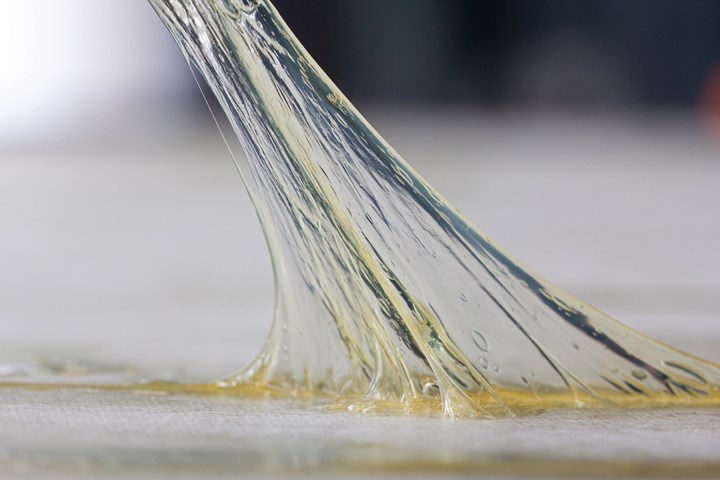Conagen develops high-performing debondable adhesives
Sustainable hot melt adhesives aim to resolve traditional hurdles in bonding.

Photo Credit: Conagen
Conagen (Bedford, Mass., U.S.), a synthetic biology R&D company, announces the development of patented, debondable hot melt adhesives made by high-performance materials from sustainable and natural bio-molecules.
According to the company, the debondable adhesives — said to outperform petroleum-based products — differ from reactive hot melt adhesives, which Conagen says rely on post-curing chemistry to develop adhesive strength, an irreversible process that hinders or prevents debonding almost entirely. Inspired by self-healing materials, the Conagen adhesive is designed with reversibility in mind, exhibiting the strength of traditionally cured adhesives with the added benefit of transitioning to a flowable material after heating.
Further, Conagen’s adhesives are advantageous in multiple industries (automotive, aerospace, marine, consumer electronics, etc.) for a wide array of materials (metals, plastics and glass) and can enable the recovery and recycling of valuable parts and materials at their end of life. Ultimately, they save time, cost and reduce waste.
The sustainable hot melt adhesive combines ingredients commonly found in nature with Conagen’s fermentation technology, which is said to engineer a synthetic pathway independent of plant source materials and more efficient and sustainable bio-based ingredients than what can be achieved with chemically synthesized versions.
Conagen says it is open to discussing commercialization opportunities with manufacturers who are interested in a new era of performance materials.
Related Content
-
Scott Bader, Oxeco partner for high-performance bonding solution
Joint technology breaks barriers to bonding lightweight flexible solar panels to roofing structures made from aluminum, coated steel and composites.
-
Henkel releases digital tool for end-to-end product transparency
Quick and comprehensive carbon footprint reporting for about 58,000 of Henkel’s adhesives, sealants and functional coatings has been certified by TÜV Rheinland.
-
XlynX Materials BondLynx and PlastiLynx for low surface energy PP, PE substrates
Award-winning Xlynx materials use breakthrough “diazirine” technology to boost bond strength up to 950% as adhesives, primers and textile strengtheners.
















